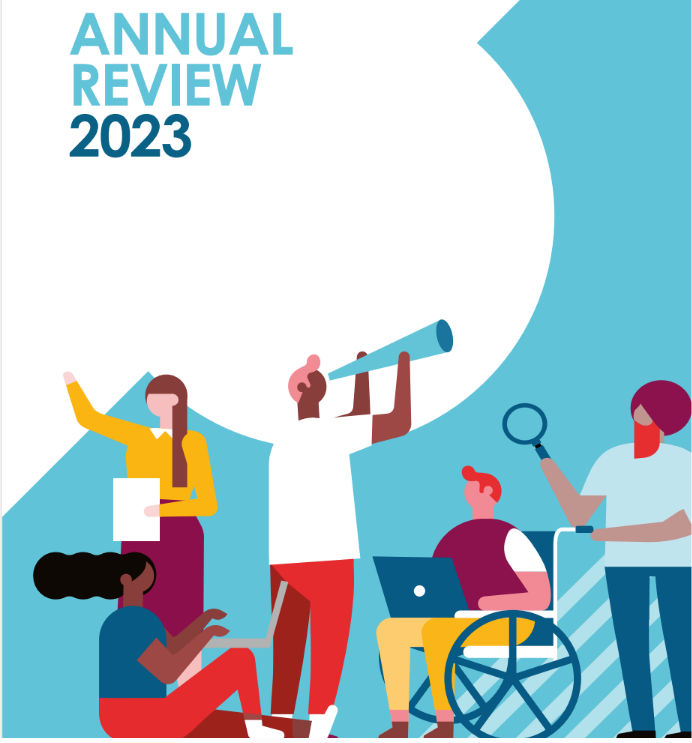The ‘Youth Under Lockdown’ research project was undertaken by the Universities of Durham and Huddersfield. It surveyed nearly one thousand young people (aged 14 to 30) to chart young adults’ experiences of the pandemic and of lockdown. It was carried out in collaboration with Children North East and the North East Youth Alliance.
The report, “The Covid-19 pandemic and young people: pressure before, pressure now and pressure to come“, presents young peoples’ experiences of lockdowns. It identified some of the future implications of the pandemic and pressures to come for young people, particularly in respect of the labour market. It also set out some imperatives for future youth research and youth policy.
Here’s a look at some of the key findings from the report:
1. The pandemic and lockdown(s) impacted heavily on young people’s day to day lives and their relationships with family, friends and partners. Some had improved relationships and fostered new hobbies. Others reported increased pressure and household strain, often connected to lack of space, and they missed friends and girl/boyfriends. Some felt they were floundering; filling and structuring time in endless ‘Netflix Days’ was a challenge.
“I was arguing with my Mum a lot… they would last days, and I wished I could have gone and done something rather than be in the house filled with tension. Even if I went on a walk it couldn’t be too long [because of lockdown rules] … I just wanted my own space.” (14-16 years, female, survey)
2. Education has been severely disrupted; learning at home was harder than in class, and young people missed many of the social benefits of school. People worried that their education and qualifications would not be good enough. Uncertainty over the future and the sense they were missing important educational and other milestones and cultural rites of passage (‘leaving dos’, graduation ceremonies, gap years, 18th birthday parties) fed this anxiety.
“I have found this home-schooling very hard. It feels like I haven’t been learning as much as I should have. I found it hard to talk to other people and when I do I get very emotional.” (14-16 years, female, survey)
3. Young people have faced some of the toughest labour market effects of the pandemic. Participants described losing jobs and losing income and sometimes not being eligible for government support (such as the furlough scheme); being able to ‘fall back’ on family support was important, but not everyone could rely on this, or rely on it to the same extent. Regardless of whether they were in work or in education, young people expressed worry and insecurity about their future prospects. The ‘COVID recession’ was unusually harsh for young people because their employment and education were simultaneously disrupted.
“I try to get some work done, but I’m very directionless because all of my commissions have been dropped due to the virus. I haven’t been self-employed long enough for government grants, so I’m just trying to make up work that will get me money.” (22-25 years, other, interview).
4. Very often young people expressed a sense of emotional and psychological ‘ill-being’; this was the most common single theme to emerge from the survey, and is now a widely reported outcome of the pandemic. It was tied to the pressures they felt being ‘stuck in’ and ‘cut off’ at home, to the disruptions to their education and employment and to their sense of uncertainty about the future.
“…the government have tried to push the idea that they are working hard to make mental health services a priority… but all they’ve done is released a few web pages with basic tips you can try to take your mind off things. People with serious mental health issues… it barely scrapes the surface.” (26-30 years, female, survey).
5. Young adults’ experiences punctured popular stereotypes. For example, reflecting a sense of collective social responsibility and a concern to protect loved ones from the risks of the virus, they expressed strong support for lockdown regulations and felt dismayed by the negative way their generation was often portrayed in the media. A second example, is that some of the survey sample were ‘key workers’ (e.g. nurses, teachers, delivery drivers, shop workers) countering negative stereotypes often associated with ‘youth’ during the pandemic.
“People are being like, ‘oh you people are spreading COVID, you young people are going out partying and spreading COVID. You people don’t want the vaccine and stuff and it’s just completely wrong, like they just want somebody to blame.” (17-18 years, male, interview).
6. The research pointed to class inequalities in young people’s experiences, tallying with other studies. The quality of educational support was an example and, because of their different levels of material and other resources, some families were more able to support young people than others. Commonly reported examples related to computer and Wi-Fi access and space to work or for privacy. Access to gardens and outside space is an under-reported example of youth inequality brought to light by the pandemic.
“[going for a walk] is especially useful as I live in a flat which has no communal gardens. My block is a small block in an area with houses with nice gardens and it’s not so nice when you can see neighbours sunbathing in their garden enjoying a BBQ or a drink.” (22-25 years, female, survey)
Interested in learning more about this study? Read the full report here.
Find out how we’re supporting Durham-based young people facing barriers to getting a good job here.
Share your thoughts with us @YF_Foundation


